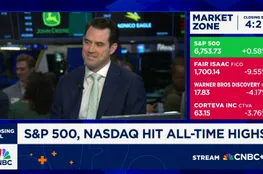House Republicans have released their sweeping tax legislation, a legislative reconciliation bill designed to bypass the Senate’s filibuster and pass with a simple majority, but key provisions championed by President Donald Trump – including a millionaire tax bracket and a tax hike on carried interest – were conspicuously absent. The bill, unveiled on Monday, primarily focuses on extending and making permanent several provisions of the 2017 Tax Cuts and Jobs Act, alongside other priorities supported by the former president. This decision has ignited a debate, with Democrats framing the bill as a tax giveaway to the wealthy, despite its overall extension of tax cuts for many income brackets. Republicans, however, argue that the bill represents a fiscally responsible approach, prioritizing tax relief for businesses and individuals.
The absence of a new millionaire tax bracket, where the top individual rate would have reverted from 37% to 39.6% for those earning over $2.5 million, is a particularly significant omission. Trump himself had reportedly been considering this proposal, aiming to counter Democratic messaging surrounding tax increases. He expressed concerns that even a small tax increase for the "RICH," which he would "graciously accept" to benefit lower and middle-income workers, would be falsely portrayed as a tax hike, referencing George Bush’s alleged misquote that cost him the 2000 election. Trump’s reasoning highlights a common Republican strategy: preemptively addressing concerns about tax increases, regardless of their actual impact. The decision regarding carried interest, income earned primarily by private equity firms while managing investor money, is equally contentious. Currently, carried interest is taxed at investment income rates, a rate critics argue is too low, considering it’s essentially akin to labor income. Trump has repeatedly called this "loophole" a priority, advocating for a higher tax rate.
However, proponents of the status quo argue that raising taxes on carried interest would stifle economic growth and deprive businesses of a crucial investment source. Drew Maloney, president of the American Investment Council, emphasized the significant investment activity generated by private equity and private credit industries – approximately $700 billion annually – and the 12 million workers employed by these companies. He contends that the 2017 tax law struck a suitable balance and that increasing taxes on carried interest would be detrimental. The legislative text, while not final, is subject to debate and amendment. The House Ways and Means Committee is scheduled to hold its markup session on Tuesday afternoon, where various tax proposals will be discussed and potential amendments will be introduced. This process will undoubtedly shape the final form of the bill, reflecting the ongoing political and economic considerations surrounding the tax legislation. The release of this reconciliation bill underscores the challenges Republicans face in crafting a tax package that satisfies both their conservative base and the broader economic landscape. The upcoming markup session promises to be a crucial moment in determining the future of tax policy in the United States, with significant implications for businesses, investors, and the overall economy. The debate surrounding these omitted provisions – the millionaire tax and carried interest – demonstrates the complexities inherent in balancing competing economic interests and political priorities. Ultimately, the success of the bill will depend on the committee’s ability to navigate these challenges and forge a consensus that can garner enough support to pass the Senate.
























